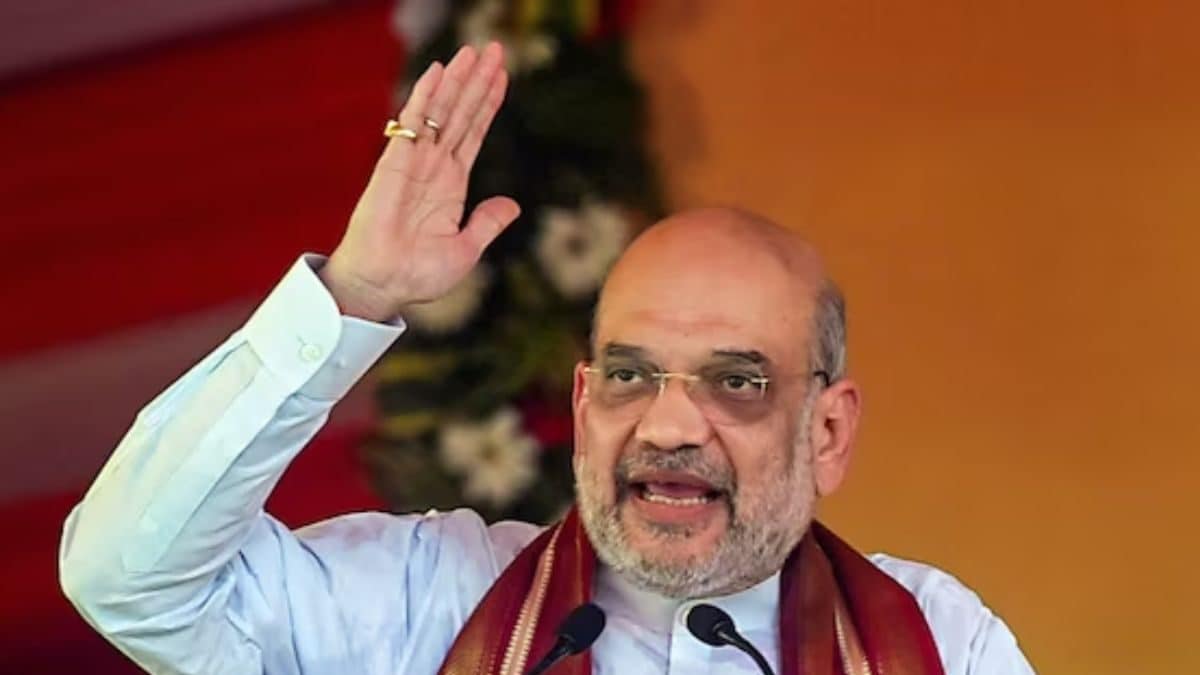Amit Anilchandra Shah was born on October 22, 1964, in Mumbai, Maharashtra, into a Gujarati Hindu family. Raised in a business-oriented household, he pursued biochemistry at CU Shah Science College in Ahmedabad. Although he did not practice in the field, his analytical skills later played a crucial role in his political career.
From an early age, Shah displayed strong leadership abilities and a keen interest in organizational management. His involvement with the Rashtriya Swayamsevak Sangh (RSS) during his college years shaped his ideological framework and introduced him to a network of influential political figures.
Entry into Politics & Ideology
Shah’s political journey began in the early 1980s when he joined the Rashtriya Swayamsevak Sangh (RSS) and its student wing, Akhil Bharatiya Vidyarthi Parishad (ABVP). He quickly gained prominence within the Bharatiya Janata Party (BJP) due to his strategic acumen and close association with Narendra Modi. His tenure as Gujarat’s Home Minister (2002-2010) solidified his reputation as a formidable political tactician.
Shah is widely regarded as a master strategist, known for his ability to turn electoral tides in BJP’s favor. His grassroots approach, micro-level booth management, and emphasis on data-driven campaigning have revolutionized modern Indian electioneering. His political ideology is firmly rooted in Hindutva, nationalism, and strong governance.
Major Policies & Reforms
As India’s Home Minister since 2019, Amit Shah has spearheaded several key reforms:
- Revocation of Article 370: The abrogation of Jammu and Kashmir’s special status in August 2019, leading to a new administrative structure.
- Citizenship Amendment Act (CAA): Aimed at providing citizenship to persecuted minorities from Pakistan, Bangladesh, and Afghanistan, a move that generated both support and opposition.
- National Register of Citizens (NRC): Proposed implementation to identify illegal immigrants, sparking nationwide debates and concerns.
- Criminal Law Reforms: Overhaul of colonial-era laws to modernize the Indian judicial system, enhancing efficiency and reducing case backlogs.
- Strengthening Internal Security: Increased counter-terrorism measures, intelligence network expansion, and crackdown on insurgent activities.
Election Results & Public Support
Amit Shah has played a pivotal role in multiple BJP election victories, particularly:
| Year | Election | Role | Outcome |
|---|---|---|---|
| 2014 | General Elections | BJP President | Historic BJP victory |
| 2017 | Uttar Pradesh Assembly | Chief Strategist | BJP won 312/403 seats |
| 2019 | General Elections | Home Minister Candidate | BJP secured 303 seats |
| 2022 | Uttar Pradesh Assembly | Chief Campaigner | BJP retained power |
Shah’s electoral strategies emphasize direct voter engagement, data-driven booth management, and aggressive grassroots mobilization. His ability to craft narratives around governance, development, and national security has significantly contributed to BJP’s dominance in Indian politics.
International Influence & Global Recognition
Shah has played a critical role in shaping India’s diplomatic policies, particularly with neighboring countries. His firm stance on national security has earned him both praise and criticism internationally. He has been involved in diplomatic talks on border security, counter-terrorism cooperation, and fostering stronger ties with SAARC nations.
His policies have also influenced global perceptions of India’s approach toward counterterrorism, regional stability, and internal governance. His outreach to Indian diaspora communities has helped strengthen BJP’s international presence and fundraising networks.
Challenges & Controversies
Despite his successes, Shah’s career has not been devoid of controversy:
- Encounter Cases (2005-2006): Accusations related to extrajudicial encounters in Gujarat, which were later dismissed by the courts.
- Allegations of Political Vendetta: Critics accuse him of using investigative agencies for political purposes, a claim that BJP has consistently denied.
- CAA & NRC Protests (2019-2020): Nationwide protests erupted over fears of religious discrimination, leading to widespread unrest.
- Handling of Law & Order Issues: Concerns raised over the response to communal violence incidents in Delhi and other parts of India.
Future Plans & Legacy
Shah’s political trajectory suggests aspirations for higher leadership within the BJP and possibly a greater role in shaping India’s governance beyond 2024. His long-term vision appears to be centered on making India a stronger, more self-reliant nation while ensuring BJP’s continued electoral dominance.
His legacy remains tied to BJP’s ideological expansion, electoral success, and national security policies. Political analysts believe that Shah’s meticulous planning, strict governance, and nationalist approach will leave a lasting impact on India’s political landscape for decades.
Disclaimer: This article is based on publicly available information and is for informational purposes only. While efforts have been made to ensure accuracy, the publisher is not responsible for any errors or omissions.




